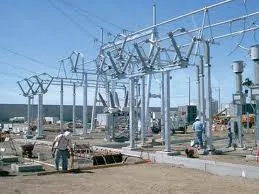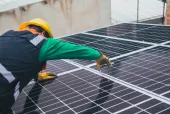
Pakistan's IPPs burdened by lack of payment from govt
The Pakistan government’s failure to pay IPPs as per agreements has made day-to-day operations difficult, said higher officials of IPP’s.
This caused independent power producers to warn of increased power outages in the coming days.
Each IPP has already borrowed Rs11 billion in long-term and Rs6 to Rs7 billion as short-term loans from different banks and financial institutes under the 2002 power policy, IPP officials treported. Independent power producer have a combined power generation capacity of more than 2,100 megawatts.
The energy sector’s circular debt stands at Rs350 billion while total outstanding dues of independent power producers have reached Rs200 billion, said officials. The situation has reached an alarming level, officials said.
Banks have denied IPPs from getting any further loans for oil purchase until previous dues are cleared, said the official. Power producers have to make regular payments to oil market companies in order to keep the power generation running.
IPPs are currently operating at less than 50% of their installed capacity due to lack of funds as oil payment need to be made in advance. “People blame us for the power crisis and have the misconception that we are posting profits,” they said. Distribution companies were termed the safest and most lucrative in the energy chain as they deduct their cut before passing it on to Central Power Purchase Authority.
Independent power producers operating according to the 2002 power policy have to arrange oil from its own resources which is then rebated by the government. Meanwhile, power generation companies installed in 1994 are provided with oil by the government in advance as per agreement. Per kilowatt fuel cost at Gencos in March stood at Rs22 compared with IPP’s Rs15.
They also said that fuel priority is given to power generation companies who have an efficiency level between 15% and 30% instead of the more efficient IPP’s who operate at a 45% to 52% efficiency level.
“We have submitted proposals to the government for shifting to cheaper alternative coal instead of expensive oil,” they said. IPPs need $700 million to shifted to the cheaper alternative, however, neither the government nor any donor is interested to provide the sufficient funds. This will benefit in the long-term and reduce generation cost by Rs7 to Rs8 kwh, they said.
Click here for more.













 Advertise
Advertise











